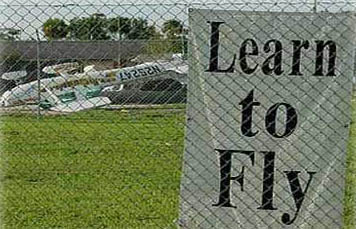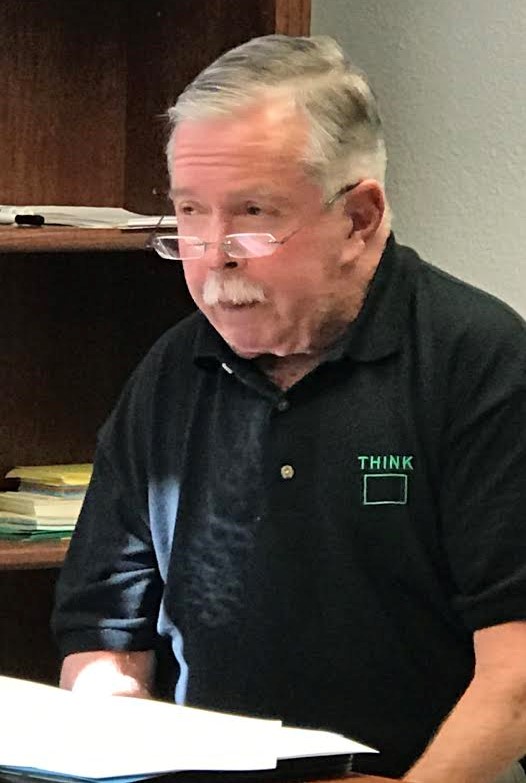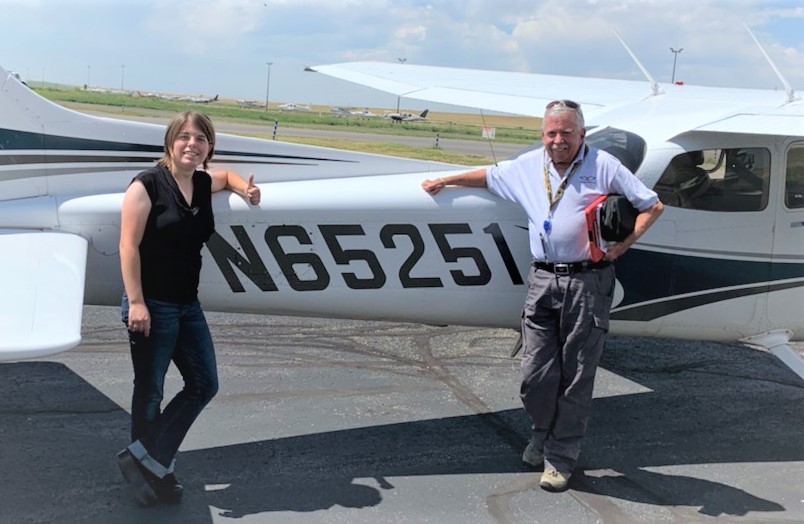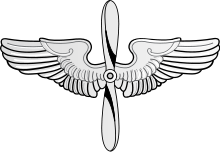Instruction
Flight Instruction
We are not your every-day flight school as we do not wish to compete with – and take food from the mouths of – starving CFIs. We do not provide the initial training for any certificate or rating. We do provide advanced instruction at a ‘graduate school’ level to certificated pilots, current or not, emphasizing knowledge, skills acquisition and/or refreshment with emphasis on risk management awareness, mitigation and/or avoidance. You have spent much time, effort and $ to earn your privileges; it would be a shame and disgrace to let all that go fallow. Plus, all you have done to earn those privileges may not have provided the real-world experience necessary to exercise those privileges safely, competently and confidently. That is what we will share with you; Course subject matter consists of but is not limited to:
Private Pilot:
Knowledge and awareness of advanced aerodynamics principles pertaining to precise command and control of an airplane during Slow Flight including Flight during and Maneuvering at Minimum Controllable Airspeed with emphasis on stall/spin awareness, avoidance and recovery technique. Performance prediction and precision airplane handling during normal, abnormal & emergency operations during takeoffs, landings and other flight regimes. Effects of Density Altitude on performance is a given [field elevation = 5,512′ msl or 1,680 m] with operations at both towered and non-towered airfields if desired.
Instrument Rating:
Like the military and airlines, you will experience IOE [Initial Operating Experience] and a LOFT [Line Operation Flight Training] where the newly-minted Instrument Pilot will gain experience, competence and confidence in the planning, preparation and execution of instrument flight in variable instrument conditions. We have access to a Redbird motion simulator for preliminary procedural training & skills review prior to actual flight operations. Ideally the customer will arrive instrument current; getting your knowledge and flying skills current most likely will need more time and commitment.
Multi-engine Rating:
Systems, avionics, operational considerations, performance planning, thinking faster than the airplane flies, adding instrument flying to multi-engine procedures and the dreaded engine-out drills combine to make you a master of your ship….and your destiny.
Commercial Pilot:
Precision flight techniques are taught with emphasis on professional-level headwork and knowledge, systems operation and management, procedural considerations and performance enhancement techniques so the new Commercial Pilot can truly demonstrate professional-level skills, knowledge, awareness and ability.
Airline Transport Pilot:
Usually the pre-requisite to the airline job, we evaluate and improve your combined multi-engine and instrument skills so when you are faced with the ‘sim check’ part of the airline interview process (where you must fly a ‘plane’ you’ve never flown before close to airline standards), you will have a fighting chance.
Soon to come: Practice job interviews with retired airline captains.
Soon to come: Airline Cockpit Resource Management (CRM) sessions.
Tailwheel Ratings:
All our tailwheel CFIs have a minimum of 1,000 logged flight hours in tailwheel airplanes. One of the few ratings we train from the git-go; we prefer the customer has done some preliminary study [we will recommend one of several texts available] to be intellectually up to speed. Then the fun begins – really learning what those footrests down there are for. We have access to a PA-18 Super Cub [tandem seating] and Stinson 108 [side-by-side] with enhanced engine performance.
Mountain Flying:
Again, a course we teach right from the start; study materials to be read before will be recommended. We follow the world-acclaimed Colorado Pilots Association Mountain Flying Course [since many of us teach in it] where you will learn about preparation and planning for high-altitude, high terrain operations. You will fly around some of the most scenic mountainous locations in the country and land/takeoff from high altitude airfields, including the highest paved airport in the country – Leadville, Colorado at 9,934′ msl/3,026 m. An afternoon ground school session is followed the next morning by the flight, weather permitting. Bring your camera!
Flight Instructor (CFI, CFI-IA, CFI-ME, CFI-Tailwheel, CFI-Aerobatics)
INITIAL CFI-A training is so extensive and demanding that we refer pilots desiring to become an initial CFI-A to a school 40 miles north at Northern Colorado Regional Airport [KFNL], the old Fort Collins/Loveland airport in Loveland, Colorado. They run a two-week high-intensity training course every month and have a high success rate. They also run a follow-up course adding the CFI-IA rating shortly after. Contact us for details.
Since their course is like drinking through a firehose insofar as the intake and informational comprehension demands are so high, we recommend the newly certified instructor come to us after a period of R & R. We then will work on any weaker areas of knowledge and/or skill(s), reinforce the use of proper language in the teaching environment and take your flying skills and instructional capabilities to truly professional-grade levels. You will exit the course much more knowledgeable and competent with deeper confidence in yourself as a pilot and instructor.
CFI add-ons will use the on-field flight school airplanes and instructors with the possibility of multi-day high-intensity course(s) given by our CFIs in the offing. Again, call for details.
Technically Advanced Aircraft (TAA’s) Training:
Just bought a complicated avionics system attached to a new airplane and find the technology…daunting? We’ll help you sort it all out so you don’t end up flying the avionics and forget about flying the airplane.

Well, there’s your problem…

Casting forth pearls of wisdom

